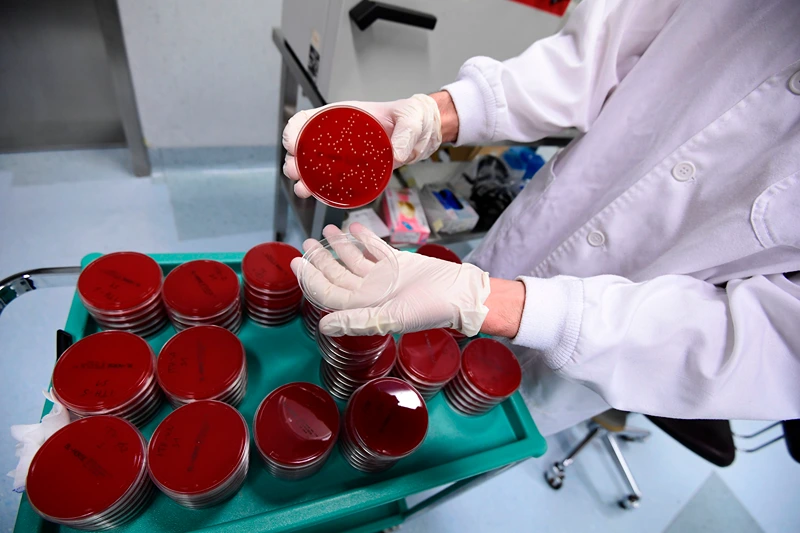

Japan: Scientists launch clinical trials to ‘revolutionize medicine’ with universal artificial blood

OAN Staff Blake Wolf
11:35 AM – Monday, June 2, 2025
Researchers at Nara Medical University in Kashikara, Japan, have launched what many are calling a “groundbreaking” clinical trial to develop universal artificial blood — enabling transfusions for patients of any blood type.
Artificial blood can potentially revolutionize the medical industry by solving one of the greatest challenges of modern medicine: critical blood shortages for patients in need across the globe.
Nonetheless, the research, which is being led by Professor Hiromi Sakai, is not the first clinical trial attempting to utilize artificial blood — as previous research has been conducted in the U.S. and the U.K. However, the most recent endeavor still signifies a renewed effort to address the global challenge of blood supply shortages.
The synthetic blood contains red blood cells and platelets, and it was created by extracting hemoglobin – an oxygen-carrying molecule – from the blood of expired donors.
The hemoglobin reportedly mimics natural red blood cells and are “universal, virus free and solves many problems with traditional blood transfusion,” including: “possibility of infection, blood type mismatching, immunological response, and short shelf life which is insufficient for stockpiling for emergency situations.”
Back in March, one clinical trial at Nara Medical University administered 100 to 400 milliliters of the artificial blood to 16 different healthy adult volunteers.
“The launch of a new clinical trial in Japan using artificial blood product derived from human hemoglobin marks a potentially exciting step forward in transfusion medicine. While this area has long held promise, previous efforts have faced significant challenges, particularly around safety, stability, and oxygen delivery efficacy,” Ash Toye, a professor of cell biology in the School of Biochemistry at the University of Bristol, England, told Newsweek.
“This trial will need to demonstrate not only that the artificial blood is safe in humans but that it can perform as reliably as donor blood under a range of clinical conditions. There are advantages with an artificial blood product as you will not have to worry about compatibility, and as it’s usually smaller, it can penetrate areas which are blocked, e.g. by a stroke or clot,” he continued.
“However, as it uses human hemoglobin sources from blood donors as a starting material, it faces the same challenges in terms of infection risk as human blood. But as with normal donor human blood, they will likely mitigate this by testing. The reliance on human blood also restricts the scale that can be achieved here. But I assume at some point they will move to recombinant human blood sources. I look forward to hearing more about the artificial product and the trial,” Toye added.
The artificial blood has a shelf life of over a year at room temperature, potentially making it useful in an array of emergencies — including in remote areas, warzones, or natural disasters.
The researchers now look to conduct additional trials, as they seek approval from the Japanese Ministry of Health to begin the mass adoption of universal artificial blood.
Stay informed! Receive breaking news alerts directly to your inbox for free. Subscribe here. https://www.oann.com/alerts
